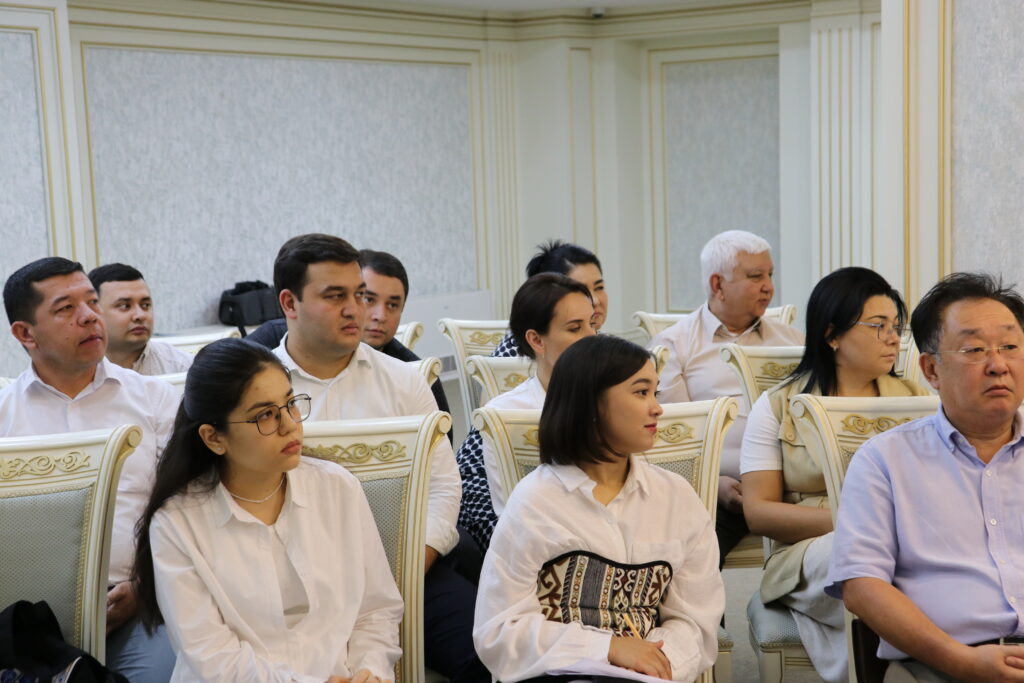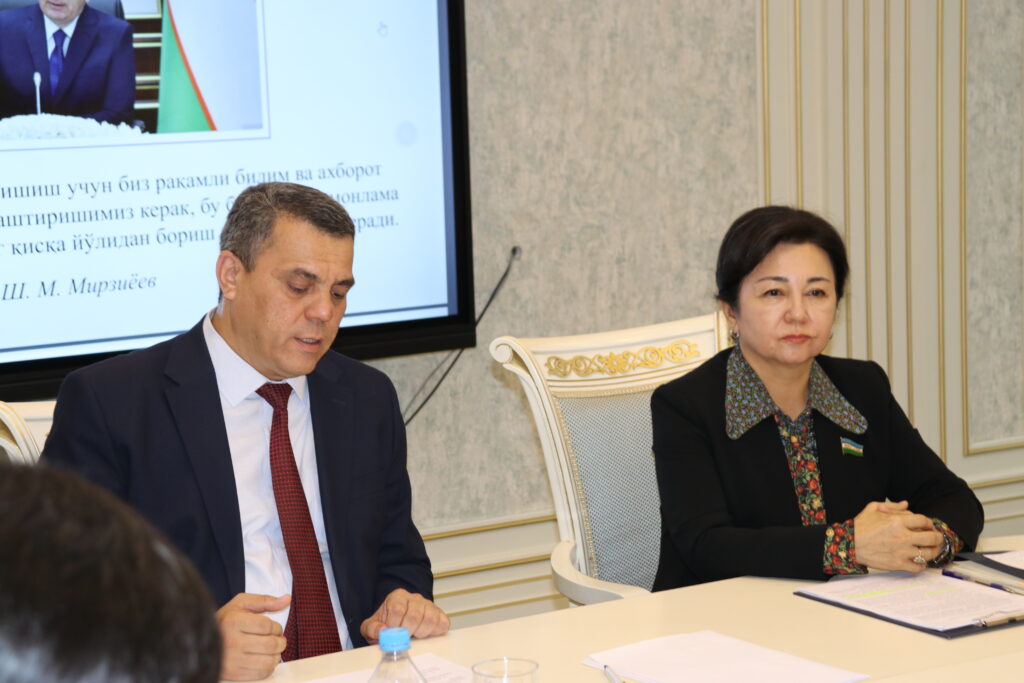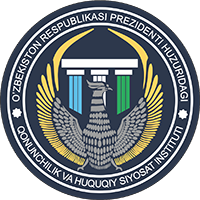On August 7, 2024, the Institute of Legislation and Legal Policy under the President of the Republic of Uzbekistan hosted a scientific-practical seminar on the topic “Virtual Networks as a Factor in Shaping the Social Role of Youth in Uzbekistan.” The event was attended by deputies of the Legislative Chamber of the Republic of Uzbekistan, representatives from ministries, the Youth Affairs Agency, the Committee on Family and Women, the Prosecutor General’s Office, the National Guard, academic and educational institutions, and civil society organizations.
During the seminar, member of the Senate of the Republic of Uzbekistan and Deputy Chair of the Committee on Youth, Culture, and Sports, D.G. Tashmukhamedova, delivered a speech. In her remarks, she emphasized that, as a result of the significant efforts in the dynamic development of information and communication technologies in Uzbekistan, the number of internet users has reached 29.52 million. According to the updated Constitution (Article 33), the state is obligated to create the necessary conditions to ensure citizens’ rights to access and disseminate information, including access to the global information network, the Internet.
Additionally, she highlighted the special attention given to the training of highly qualified personnel in the field of information technology in the country. Under the “Digital Uzbekistan — 2030” strategy, 89 projects have been implemented in various regions and more than 200 projects across sectors, resulting in a tenfold increase in the number of educational institutions residing in the IT Park, now numbering 372 organizations. Moreover, the “Million Programmers” project and the “IT Talents” program have been launched to train advanced personnel. Within this program, up to 60% of the expenses incurred by youth for obtaining international IT certifications, as well as 100% of expenses for those with a “B2” or higher-level certification, will be reimbursed.
It was also noted that the Internet creates a conducive environment for forming certain behavioral patterns and personality types. In such circumstances, it is essential to consider the vulnerabilities of youth in relation to new emerging threats, alongside the positive impacts of internet platforms. Therefore, it is crucial for government authorities, educational institutions, and civil society organizations to implement necessary measures to ensure internet safety.
The seminar also highlighted that two models of modern youth have emerged in Uzbekistan’s internet segment. The first model is the “innovative individuals,” who are young people interested in technology, online education, and virtual meetings, and are expected to become the drivers of society in the future. The second model includes young people who have become dependent on the internet and are experiencing psychological difficulties. Specifically, research on the impact of internet dependence on the psycho-emotional state of Uzbek youth has identified the following issues: 38.9% suffer from excessive interest in gadgets, 45% experience anxiety, 34% have emotional dependence, 27.4% face mood swings, and 37.1% lose interest in other activities. Additionally, internet dependence may negatively impact the brain, impairing memory, concentration, and learning abilities.
Given the growing influence of internet platforms on youth, proposals were put forward to develop a national strategy for promoting internet culture and implementing safe internet practices. Within this strategy, it is planned to develop measures to protect against harmful content using artificial intelligence, manage access to the internet and social networks through competent authorities, establish a special scientific school, and improve legislation.
These and other issues were thoroughly discussed, and the participants emphasized the importance of continuing to address these challenges with the involvement of specialists from various fields and practical activities.




